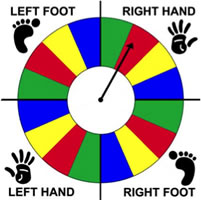 Games in Teaching and Learning
Games in Teaching and Learning
Key Gaming Idea: Focus on the four elements of gaming: goal, rules, action & attitude, and feedback.
What are games?
Are you a fan of board games, computer games, iPad apps, role-playing games, card games, or other types of games?
Are you a gamer?
According to Jane McGonigal (2011, Reality is Broken, p. 3), "gamers want to know: Where, in the real world, is that gamer sense of being fully alive, focused, and engaged in every moment? Where is the gamer feeling of power, heroic purpose, and community? Where are the bursts of exhilarating and creative game accomplishment? Where is the heart-expanding thrill of success and team victory? While gamers may experience these pleasure occasionally in their real lives, they experience them almost constantly when they're playing their favorite games."
Elements of a Game
 Go to the Google Game: Creatures wikispace to try a Google Game. Does it contain the following four elements?
Go to the Google Game: Creatures wikispace to try a Google Game. Does it contain the following four elements?
All games have four elements. When you create a game, be sure to GRAF it.
- Goal. You need a way to win or achieve the goal.
As educators we need to match goals with purposes and reasons for learning.
- Rules. You need to know what you may and may not do.
As educators, we need to provide guidelines for learning.
- Action and Attitude. You must do something along the way. Make it fun and interesting.
As educators we need to make leanring meaningful and challenging.
- Feedback. You need to know how you are doing.
As educators, we need to provide ongoing opportunities to self, peer, and teacher assessment.
Digital Games
It would be great if we could sit down and produce an award-winning educational game like the SIMS series in three hours. Unfortunately, it's not possible even with all the cool tools available. However you can take the ideas from today and work on building online games. Use the following resources to get started:
- Aris. This is an open-source platform for creating mobile games.
- Couprie's How to Teach Computer Science. Great page by a teacher teaching gaming. Contains good assessment tools.
- Gameful. This is my favorite social community related to gaming.
- Gamestar Mechanic. Nice starting point for students building games.
- Game in Education. This wiki contains links to lots of gaming resources for educators. They have a great list of game creation tools.
- Game Salad. Easy-to-use game creation tool.
- Scratch. Great programming tool for making games.
- STEM Video Game Challenge. Super challenge for students game makers.
In this workshop, let's concentrate on incorporating the basic elements of games into quality learning experience that ask students to apply 21st century skills across the curriculum.
According to Eli Neiburger in the article Summer Reading Levels Up by Greg Landgraf (2011), "teaching information literacy can be successful, so long as you don't call it that... Gameplay is the key. It's an extremely powerful way to motivate your audience."
We'll use game design techniques and mechanics to "gamify" a non-game learning environment. Gamification is simply turning a learning task or activity into a game to make it more effective, efficient, or appealing.

